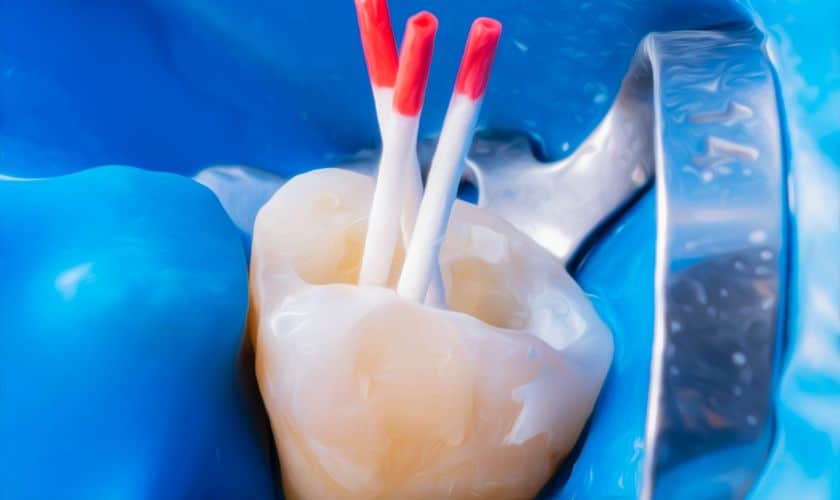Toothaches are no joke. They can disrupt your sleep, make eating a chore, and leave you reaching for pain relievers constantly. But what if that throbbing pain isn’t just a simple cavity? It could be a sign of a deeper problem – an infected tooth pulp.
Thankfully, you don’t have to live with the pain or lose the tooth entirely. Root canal therapy is a safe and effective procedure designed to save your tooth and alleviate that dreadful discomfort.
Understanding the Pulp
The inside of your tooth contains a soft tissue called the pulp. This pulp houses nerves, blood vessels, and connective tissue, keeping your tooth alive. However, bacteria from deep cavities or cracks can invade the pulp, causing inflammation and infection.
Symptoms of an Infected Tooth Pulp
- Throbbing toothache that worsens at night
- Sensitivity to hot and cold temperatures
- Swollen gums around the tooth
- Loose tooth
- Visible pimple on the gum near the tooth
How Root Canal Therapy Works
Root canal therapy might sound intimidating, but it’s a routine procedure often completed in one or two appointments. Here’s a simplified breakdown:
- Anesthesia: Your dentist will numb the area around the tooth to ensure your comfort.
- Accessing the Pulp: A small opening is created in the tooth crown to access the infected pulp.
- Removing Infection: The infected pulp, nerves, and bacteria are carefully removed.
- Cleaning and Shaping: The canals inside the tooth root are meticulously cleaned and disinfected.
- Sealing the Tooth: The canals are filled with a special material to prevent future infection.
- Restoration: A temporary or permanent crown is placed on the tooth to restore its strength and function.
Benefits of Root Canal Therapy
- Pain Relief: The primary benefit is eliminating the excruciating pain caused by the infected pulp.
- Saves Your Tooth: By removing the infection, root canal therapy preserves your natural tooth, preventing the need for an extraction.
- Maintains Oral Health: Saving your natural tooth helps maintain proper bite function and prevents other teeth from shifting.
- Improved Chewing: A healthy, pain-free tooth allows you to chew comfortably and enjoy your favorite foods again.
Root Canal Therapy: Beyond the Myths
Many misconceptions surround root canal therapy, often portraying it as a painful experience. However, modern dentistry utilizes advanced techniques and anesthesia to ensure a comfortable procedure.
Taking Care of Your Teeth After Root Canal Therapy
Although the infected pulp is removed, the tooth itself is still susceptible to decay. Consistent oral hygiene – brushing, flossing, and regular dental checkups – is crucial for maintaining the health of your restored tooth.
Root canal therapy can be a lifesaver when it comes to your oral health and overall well-being. Don’t hesitate to speak to your dentist if you experience persistent tooth pain. By addressing the problem early, you can keep your smile healthy and pain-free for years to come.

